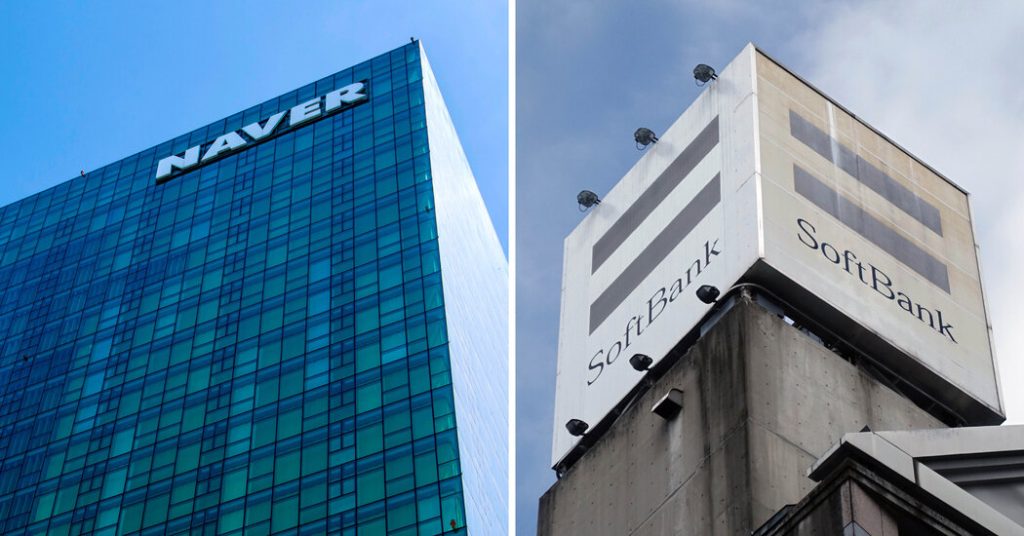A joint venture established in 2019 by two leading Japanese and South Korean companies was seen as a symbol of cooperation in the face of strained diplomatic ties. The companies involved were South Korea’s Naver and Japan’s SoftBank Group, which jointly owned the operator of Line, a popular South Korean messaging app in Japan. However, disputes over the ownership of the venture have recently emerged, raising concerns that this could once again strain relations between the two countries. Both Japan and South Korea have a sensitive history due to Japan’s colonization of Korea, and tensions have often arisen over territorial and geopolitical issues.
The messaging platform at the center of the dispute, Line, was introduced in Japan in 2011 by Naver, and has since become Japan’s most popular messaging app with millions of users. In 2019, the founder of SoftBank and a co-founder of Naver agreed to create a 50-50 joint venture to operate Line. At the time, Japanese-South Korean relations were at a historic low due to issues such as a Supreme Court order in South Korea for Japanese companies to compensate wartime forced laborers, and Japan’s subsequent export restrictions on key semiconductor materials needed by South Korea.
While relations between Japan and South Korea have improved significantly in recent years, cracks in the Naver-SoftBank venture have caused concern. A security breach in Line’s systems led to Japan’s communications ministry issuing what was interpreted as a directive for Naver to reduce its stake in the joint venture. This move has drawn criticism in South Korea, with some viewing it as an attempt by Japan to undercut a major South Korean company. Political opposition within South Korea has accused the government of being overly accommodating towards Japan, and have rallied against any measures that could disadvantage South Korean companies abroad.
Leaders on both sides are working to prevent the Line ownership dispute from escalating further, emphasizing the importance of maintaining diplomatic relations. The companies involved are discussing possible changes to the ownership structure of Line’s operator, with a focus on improving security governance. Both the Japanese and South Korean governments have expressed a commitment to ensuring fair treatment for their companies abroad, and are exploring ways to resolve the issue through cooperation rather than confrontation.
The handling of the Line ownership issue may have broader implications for Japanese-Korean relations, as the two countries seek to build a stronger foundation for cooperation while addressing past tensions. The public in South Korea is waiting to see how Japan will respond to recent gestures by the Yoon government, which has shown intentions to mend relations. Both parties recognize the need to address lingering issues in their relationship in order to move forward. The ultimate resolution of the Line dispute could set the tone for future interactions between Japan and South Korea.








